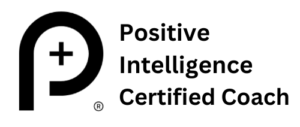Today’s piece was originally published in the June 2013 edition of Soulwoman eMagazine, the theme of which was “Wisdom.” Hope you enjoy it! And make sure to hop on over to Soulwoman for a wealth of soul-filled writing and gorgeous visuals. (The magazine’s photos for this article were much more beautiful than mine below!)
I live just outside of Washington, D.C. If ever there was a place toward which so-called “smart” people gravitate, it’s the capital of the United States.
Washington is a veritable magnet for smarty-pants wonks of all political stripes. (A “wonk,” according to Merriam Webster’s Online Dictionary, is “a person preoccupied with arcane details or procedures in a specialized field.”)
You’d think with all of that “smartness” (or wonkiness) in one place, that wisdom wouldn’t be in such short supply.
I could use lots of words to describe what drives decision-making in this city, but “wisdom” isn’t usually in the mix.
It’s a great example of how “smart” people are not necessarily “wise” people.
Lao Tzu distinguished intelligence from wisdom this way in the Tao Te Ching: “Knowing others is intelligence; knowing yourself is true wisdom. Mastering others is strength; mastering yourself is true power.”
Around the same time (well over 2,000 years ago), Aristotle’s take was: “Knowing yourself is the beginning of all wisdom.”
It doesn’t seem that humanity is moving up the learning curve very quickly, does it?
How to Pave the Way for Wisdom
One of my favorite Hogwarts gadgets in the Harry Potter series is wizard Albus Dumbledore’s “Pensieve.” The Pensieve is a bowl filled with a silvery substance–something between a liquid and a gas–that’s used to review memories.
As Dumbledore explains, “One simply siphons the excess thoughts from one’s mind, pours them into the basin, and examines them at one’s leisure. It becomes easier to spot patterns and links, you understand, when they are in this form.”
The Pensieve is a perfect metaphor for how to cultivate wisdom through meditation and other mindfulness practices. In the process of quieting the mind, thoughts untangle themselves, allowing us greater scrutiny of the quality of our thinking.
With practice, you learn to let go of thoughts that don’t serve you well. As unproductive thoughts are shed, space is created for that deeper intelligence called wisdom to bubble to the surface.
In the words of Antoine de Saint-Exupery: “Wisdom is when we see with our heart.”
Wisdom: The Path to Right Action
What’s so important about wisdom, anyway? Why can’t we just leave that to old people on top of mountains?
I used to be an economist (one of those very Washington, D.C.-bound wonks I disparaged at the beginning of this article). Economists are all about efficiency.
As I’ve awakened to the power of mindfulness and meditation over the past few years, I’ve come to realize how inefficiently we live our lives if wisdom is not our compass.
- Wisdom helps us determine what’s important in life.
- Wisdom points us to right action.
- Wisdom reveals silver linings and life lessons when our smarty-pants brains tell us we’ve failed at something.
In short, wisdom is the basis for living a contented, purposeful, happy life. Without it, we not only take wrong turn after wrong turn; we also lack the wisdom to glean the lessons from our missteps.
Wisdom impacts us not only on an individual level. The self-reflection that serves as the catalyst for wisdom also gives us insight into our fellow wo/man. Wisdom therefore gives rise to greater empathy and compassion. The world could use more of that.
Personally, I’d prefer to have wisdom at my disposal sooner rather than later. Wouldn’t you?
How to Dissolve the Biggest Roadblock to Wisdom
OK, you’re convinced now that wisdom is worth pursuing. But how to go about it?
Do you look for it in books? Do you put that powerful intelligence of yours to work to find it? Remember Washington, D.C. Intellect won’t get you there (at least not on its own).
“Sell your cleverness and buy bewilderment,” is what the Persian poet Rumi advised way back in the 13th century.
In other words, be open to the wonder of the unknown and lose the smarty-pants part of you. The technical term for “the smarty-pants part of you” is ego.
The ego’s job, in short, is to convince you that you’re always right. In order for you to be right, the rest of the crowd has to be wrong. Ego tells you to be better, stronger, faster, prettier, thinner and smarter than the competition (in other words, everyone else).
If you are not the best at absolutely everything, ego makes itself even more important by nagging you about your shortcomings 24/7. Ego is your harshest critic, and the biggest source of thoughts that don’t serve you well.
Ego idolizes cleverness and abhors bewilderment.
Ego is the biggest roadblock to wisdom.
Here’s the secret, though. Ego can only work under cover.
As soon as you become aware of how ego works, and, more importantly, realize that ego-driven thoughts aren’t the real “you” (and therefore shouldn’t be trusted), its power begins to erode. When you laugh at your ego, it hightails it for the hills.
Remain watchful, though, because ego is a master of disguise. Ego is behind victim mentality, for example, since the victim in question believes they have more to suffer about than everyone else.
Or let’s say you consider yourself to be pretty enlightened already. If you catch yourself thinking, “I’m more spiritual than s/he is,” ego has hijacked you again.
The need for watchfulness is where mindfulness practice comes in.
Stillness: The Secret Source of Wisdom
“Silence is as full of potential wisdom and wit as the unhewn marble of great sculpture.” ~ Aldous Huxley
Meditation and other mindfulness practices have taught me the power of stillness. When I say “stillness,” I’m not only talking about a quiet room; I’m talking about a quiet mind.
A quiet mind, though, is not an empty mind. A lot of people think, “I can’t meditate because I think too much. I could never clear all the thoughts out of my head.”
That’s not how meditation works. Meditation isn’t about clearing your thoughts. It’s about observing your thoughts. It’s about allowing thoughts and feelings to come and go without judging them, and letting go of those that don’t serve you well. Meditation turns our heads into Dumbledore’s Pensieve.
When you start practicing meditation, you realize very quickly that a certain category of thoughts rests on the surface of your consciousness. These shallow thoughts usually carry worry, anxiety, and self-judgment with them. The ego factory spits these out by the thousands.
Meditation is a quality control system for your thought patterns. Ego-driven thoughts should rarely, if ever, make the cut. See them for what they are, then let them go.
Once you’ve swept away the ego’s detritus, the path is cleared for wisdom-based ideas and observations to surface.
So Sit Down and Shut Up…
The world needs our wisdom.
Wisdom serves us not only as individuals; it’s the foundation of creative thinking required for effective problem solving at every level of the human experience.
Without wisdom, the book smarts of all the wonks in the world won’t be enough to protect our future. As long as ego dominates decision-making, we’re screwed.
How about we stop screaming at each other and take a quiet approach? How about we make room for stillness in our lives and invite wisdom to the table?
And never forget to keep an eye on that ego:
“It is unwise to be too sure of one’s own wisdom. It is healthy to be reminded that the strongest might weaken and the wisest might err.” ~ Mahatma Gandhi




